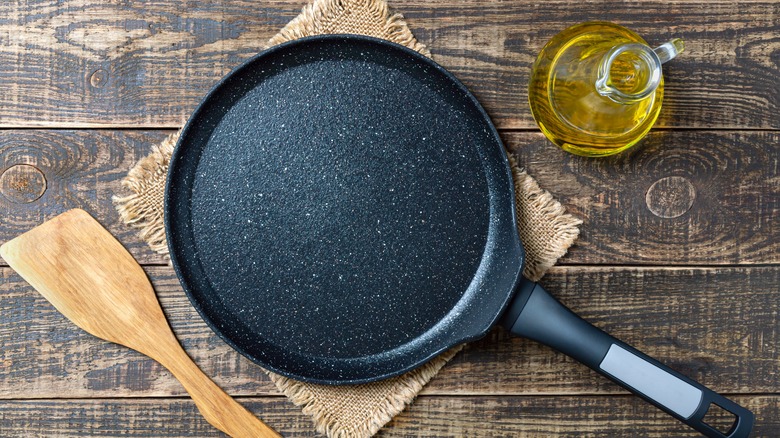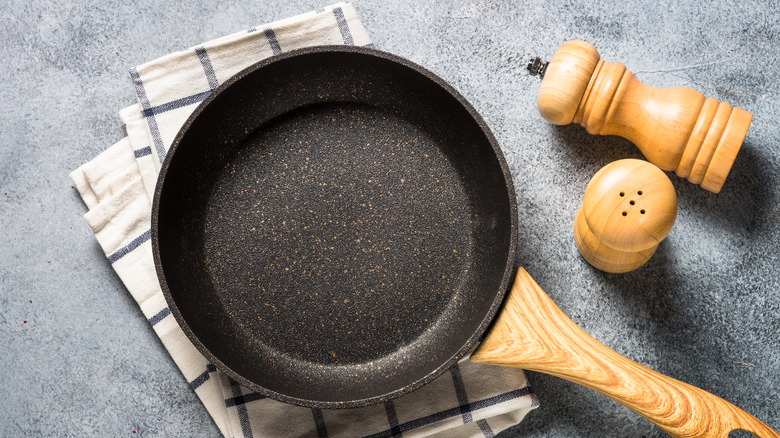Do You Need To Season Nonstick Skillets?
When it comes to cookware, or batterie de cuisine as Julia Child liked to call it, there are tons of options to choose from. There are classic copper, stainless steel, enamel, cast iron, and a host of other options available for every type of cook. However, one of the more recent developments in the cooking world is the presence of nonstick skillets. When we say recent, we mean the 1930s, because the other varieties listed have been around far longer.
Though Teflon — the slippery polymer that traditionally coats nonstick skillets — was developed in 1938, it did not make its way onto a skillet until 1954. Popular ever since for their convenience and ease of use, nonstick skillets have nevertheless faced a certain amount of confusion in terms of care and maintenance for longevity. For instance, is there a need to season a nonstick skillet the way you would a cast iron?
Seasoning skillets is what one did before chemical polymerization. By baking oil into the cast iron you create a rust-resistant, easy-release surface that keeps food from sticking to the pan. Keeping a cast iron well seasoned makes it practically immortal, which is why they are often passed down through the generations. But does the same concept apply to nonstick since it is already polymerized? Yes, as a matter of fact, it does.
Season for longer lasting skillets
While seasoning is not a requirement for nonstick skillets the way it is for cast iron, there are still plenty of reasons why you should make it a point to season your nonstick skillets. The first of which is the fact that it really isn't that difficult to do. After using your skillet, clean it with warm soapy water, and allow it to dry. Gently heat the pan for about thirty seconds and apply a small amount of oil to the skillet. Using a paper towel, rub the oil over the surface of the pan, and allow the pan to cool before wiping away any excess oil. By doing this you've formed an added layer of protection that will help keep foods from burning and building up unwanted residue.
Seasoning also goes a long way toward extending the life of your pan. The oil will help even out any imperfections the pan may have as a result of use. Like any piece of equipment, frequent use will eventually cause the nonstick surface of the pan to fade. Seasoning the pan adds an extra layer of natural polymer.
While you don't need to season a nonstick skillet nearly as often as you would a cast iron, occasional extra care for the nonstick will help it go that much farther. As you've made the investment into one or multiple pieces of cookware, take a little time every once in a while to season your nonstick pan.

